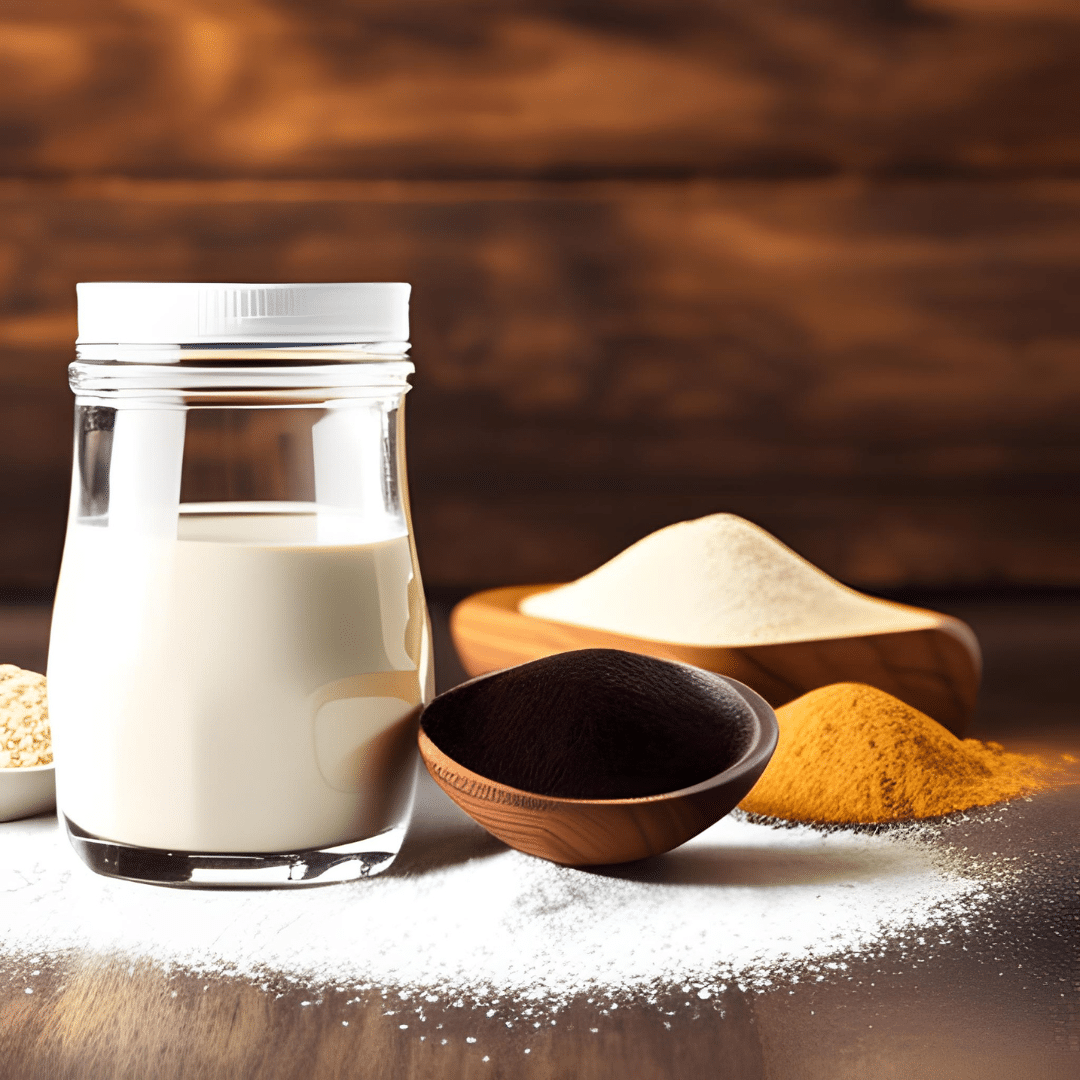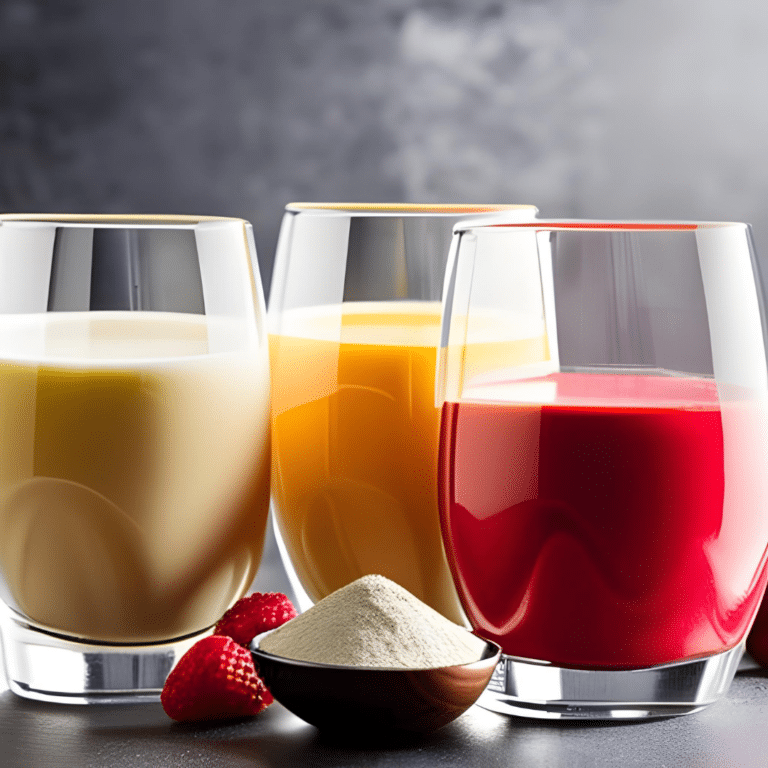Table of Contents
Is whey protein plant-based? No, it’s not because it is derived from cow’s milk.
If you’re a vegan, you may have heard that whey protein is not considered plant-based. But what exactly is whey protein, and why can’t vegans consume it?
Is there a way to get the benefits of whey protein without consuming animal products? Let’s dive into the origins and composition of whey protein and explore the best plant-based alternatives.
Is Whey Protein Plant-Based and Vegan?

What Is Whey Protein?
Whey protein is a byproduct of cheese production. It is created from cow’s milk, which contains two primary proteins — casein and whey.
Casein comprises 80% of milk proteins, while the remaining 20% comprises various proteins, including beta-lactoglobulin, alpha-lactalbumin, immunoglobulins, bovine serum albumin (BSA), and lactoferrin.
Once the cheese has been produced, the remaining liquid is called “whey.” This liquid contains all the beneficial proteins mentioned above in concentrated form.
As a result, whey protein is neither plant-based nor vegan.
The Ethical Implications Of Consuming Animal Products
For many vegans, abstaining from animal products is more than just a dietary choice — it’s also an ethical decision. Vegans believe animals should not be used for food or other products due to their inherent rights as sentient beings.
Therefore, consuming animal-based products such as dairy or eggs goes against this belief system for many vegans. As such, vegans look for alternative sources of nutrition that are still high in quality but don’t involve animals in any way.
Vegan Alternatives To Whey Protein
Fortunately, plenty of vegan alternatives to whey protein are on the market today that provide similar nutritional benefits without involving animals in any way.
Some popular plant-based protein powder sources include pea protein powder, brown rice powder, hemp powder, quinoa powder, and pumpkin seed powder — all of which provide ample amounts of essential amino acids necessary for muscle growth and repair without involving animal products at all.
Additionally, these powders usually contain added vitamins and minerals to ensure optimal health benefits.
Plant-Based Protein Powders Offer an Eco-Friendly Alternative to Whey Protein
The sports supplements industry relies heavily on the dairy industry for whey protein powders.
However, with the rise of plant-based diets, sustainable alternatives have become increasingly popular. MuscleTech and Optimum Nutrition are two major brands that have recently released plant-based protein powders to meet the growing demand for vegan products.
Let’s take a closer look at why this is such a significant development in sustainability and health.
The Benefits of Plant-Based Protein Powders
The primary benefit of switching to a plant-based protein powder is its environmental impact.
Animal agriculture has been linked to deforestation, water pollution, and greenhouse gas emissions — all of which can be reduced by adopting a more sustainable approach to food production.
Plant-based proteins also require fewer resources than animal proteins, making them a much more eco-friendly choice.
In addition to their environmental benefits, plant-based proteins are better for your health. Studies have shown that vegan diets can help reduce inflammation, improving energy levels and overall well-being.
Additionally, plant-based proteins are typically lower in calories than animal proteins and contain fewer saturated fats, making them a healthier option for those looking to maintain or lose weight.
Finally, plant-based proteins are often easier for people with allergies or sensitivities to digest than animal proteins. For example, soy protein is one of the most common sources of vegan protein powder and is free from lactose and gluten — two common allergens found in dairy products like whey protein powders.
This makes soy protein an ideal choice for those who need an allergen-free alternative to whey protein powders.
Conclusion
Although whey protein does not fall under a vegan diet due to its origin in cows’ milk, you can still get enough daily protein intake if you’re vegan.
Plenty of delicious vegan alternatives, like pea protein powder, brown rice powder, etc., offer similar benefits as whey protein minus the ethical implications associated with consuming animal products, so don’t feel limited by your dietary choices.
All it takes is more research to find the best plant-based foods available today — so start putting together your grocery list now. With careful shopping habits, you will soon enjoy a vegan diet’s excellent health benefits. And finally, a plant-based diet is more sustainable for the planet.
Frequently Asked Questions
Is plant-based or whey protein better?
As the popularity of plant-based diets grows, so does the debate over the benefits of plant-based versus whey protein.
While both provide essential nutrients for optimal health, plant-based protein offers more benefits.
Unlike whey protein, plant-based protein is free from lactose, cholesterol, and saturated fats, making it a healthier choice for those with dietary restrictions.
Moreover, research shows that plant-based protein boasts higher levels of fiber, vitamins, and minerals, which can help lower the risk of chronic diseases such as heart disease and diabetes.
So, whether you’re a plant-based eater or just looking to switch up your protein routine, consider adding some plant-based protein to your plate for optimal health benefits.
What is whey protein made of?
As people become more health conscious, they often look for the best protein sources.
While whey protein has been a popular supplement in the fitness world for quite some time, many are starting to turn to plant-based protein for its health benefits.
But what exactly is whey protein made of? Whey protein is a byproduct of the cheese-making process derived from milk. It comprises a combination of globular proteins, notably beta-lactoglobulin, and alpha-lactalbumin.
While whey protein is known for being high in essential amino acids, plant-based protein powders can offer similar amino acid profiles with the added benefits of being lower in fat, free of cholesterol, and better for the environment.

